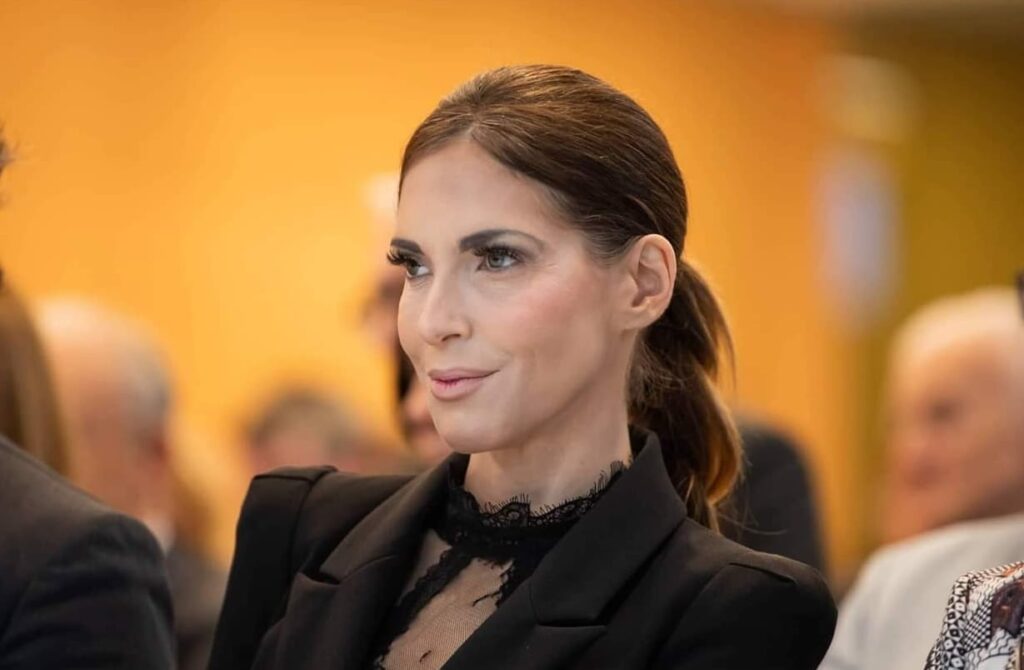MP of the Slovenian Democratic Party (Slovenska demokratska stranka – SDS), Eva Irgl, asked the Minister of Foreign Affairs, Tanja Fajon, whether she agrees with the resolution on the classification of the Russian Federation among the states who sponsor terrorism; whether Slovenia would also declare Russia a terrorist state; and how she assessed the vote of Slovenian Members of the European Parliament who voted against the resolution or who did not vote at all. We are publishing Irgl’s letter in its entirety below.
“Nine months since the start of the war in Ukraine, Russia is pursuing a new form of escalation of aggression and attacks, targeting Ukraine’s civilian infrastructure with attacks on power plants and energy infrastructure.
At the 6th regular session of the Committee on Foreign Policy, which happened on the 19th of October 2022, I asked the Minister of Foreign Affairs, Tanja Fajon, a question, wondering whether Slovenia will also declare Russia a terrorist state and whether Slovenia will abolish visas for Russian citizens (with this, we are, of course, talking about the Russian elites who are subject to and support the Putin regime).
I also drew attention to this problem in the interpellation against the Minister of Foreign Affairs but did not receive a reply. However, as we know, at the international level, several other institutions have officially declared Russia a terrorist state already, including the Polish Senate and the Czech, Latvian and Estonian parliaments.
On the 21st of November 2022, a NATO parliamentary committee designated Russia a “terrorist state” and adopted a resolution recognising Russia as a “terrorist state,” which was supported by all 30 NATO members.
The resolution identifies Russia as the most immediate threat to the Euro-Atlantic security and calls for the creation of a special international tribunal on Russian aggression in Ukraine. Then, on the 23rd of November 2022, the European Parliament adopted a resolution that recognises the Russian Federation as a state sponsor of terrorism.
The resolution reiterates its condemnation of the unlawful, unprovoked and unjustified Russian military aggression in Ukraine and calls on the EU Member States to take measures to fully isolate the Russian Federation internationally, to refrain from all official events on the territory of the Russian Federation, further reduce diplomatic relations with Russia and limit contacts with its official representatives at all levels to the bare minimum, and calls on the European Union and its Member States to develop an EU legal framework for the classification of countries as state sponsors of terrorism and as states using terrorist means, in order to be able to take more meaningful restrictive measures against these countries and to substantially limit relations with them.
Members of the European Parliament overwhelmingly supported the resolution recognising Russia as a state sponsor of terrorism and a state using terrorist means. The resolution was adopted by 494 votes to 58, with 44 abstentions. Among the abstentions were two Slovenian MEPs from the ranks of the S&D group, and two Slovenian MEPS from the ranks of the Renew group did not vote on the resolution at all.
Regarding what I mentioned above, I asked the Minister of Foreign Affairs the following questions:
1. Do you, as the Minister of Foreign Affairs, support the resolution on the recognition of the Russian Federation as a state sponsor of terrorism? Do you agree with its content in its entirety?
2. Will Slovenia put Russia on the list of states sponsoring terrorism?
3. How do you assess the voting of some MEPs who voted against the resolution or did not vote at all?


